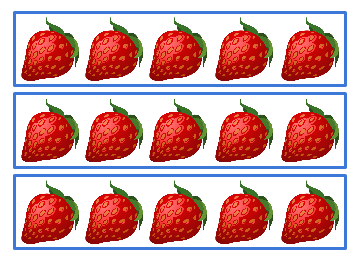
Problem solving with multiplication and division (10x10)

Solving two step problems
Learn more about solving two step problems by watching this video.
Two step problems involve different parts to solve. When solving two step problems in mathematics it is helpful to break down the question into key parts. Sometimes it helps to underline the key ideas in the question.
When the question is about equal groups and we want to find a total we use multiplication to find the answer. If a question involves sharing something equally we use division to find the answer.
If you get stuck and don't know a strategy to solve the question, it helps to organise your thinking into an array diagram to represent the problem.
Here are some practice questions involving two steps. Some of them are about equals groups and finding totals and others involve sharing something equally.
Use multiplication for equal groups and finding a total.
Use division for sharing into equal groups.
Question 1
There are $2$2 flower beds in Irene's backyard.
Each flower bed has $4$4 strawberry plants.
How many strawberry plants are there in total?
If each plant has $3$3 fruit growing on it, how many strawberries are there in total?
question 2
There are $5$5 strawberry plants in a backyard, each with $4$4 strawberries growing on them.
How many strawberries are there in total?
$2$2 friends pick the strawberries and want to equally share them.
How many strawberries will each friend get?
question 3
A group of $2$2 friends pool their money together and buy a big bag of marbles.
The bag has $22$22 marbles. Of these marbles, $20$20 of them are glass marbles and $2$2 are plastic marbles.
If the friends share the glass marbles amongst themselves equally, how many glass marbles will each of them get?
Gwen sells her bag of glass marbles to her brother. If each marble is sold for $\$2$$2, how much does Gwen sell the bag for?